- Learning time
- 20 minutes
- First play time
- 15 minutes
Matcha
Designed by: David Harding (II)
Matcha is a fast-moving card game for two people, with the theme of making tea. If that sounds rather mundane, don’t be put off – Matcha combines a simple set of rules with real depth of play.
The game is made up of a deck of cards that show four of the accoutrements required to make a proper cup of tea in Japan: tea leaves, water, a bowl and scoop. A fifth one (the whisk) also features in the game, but not on the cards. Each of these five symbols are also represented by elegant wooden pieces. The cards are numbered 1-4.
Play starts with six ‘mat’ cards being dealt face-up to the table, and a standard card dealt face up on top of them. The mat cards are broken into three pairs, and these show whether players are bidding for the cards with numbers or symbols. Players are dealt five cards each. A pair at a time, players place face-down bids next to each card (you can also pass) and reveal simultaneously. If the mat card shows numbers, a winning bid has to match the number on the card that’s up for grabs. If it shows symbols, your bid much have a matching symbol. Ties on the number bids are decided by symbols, and ties on the symbol bids are decided by numbers!
But it’s not quite as straightforward as you imagine, because although 2 card beats a 1, a 3 card beats a 1 and a 2, a 4 card only beats a 2 and a 3, and is beaten itself by a 1. The same circular logic also applies to the symbols, where the lofty tea-leaf beats the bowl and water, but is beaten itself by the lowly scoop. Also – if a player loses the bid and didn’t match the number or symbol the bidding was on, they get to pick up a whisk. This can be a neat strategy to grabbing a win if you’re not crazy about your cards, and you need to keep an eye on your opponent if it looks like they’re not that interested in winning any bids!
Finally there are two zero cards. These can be used as part of a whisk-collecting strategy, or simply pure bluff. The game ends when either player has collected 4 of the same kind of symbol or at least one of each of the five kinds.
The guru's verdict
-
Take That!
Take That!
Not huge. Although for a game about the ceremonial nature of tea-preparation, more than you might imagine.
-
Fidget Factor!
Fidget Factor!
Almost none.
-
Brain Burn!
Brain Burn!
You need to be watching what your opponent is collecting, and judging whether your moves could potentially help them. Moderate.
-
Again Again!
Again Again!
Very hard to predict a winner, but not solely about luck, Matcha offers a lot of variety.


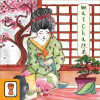
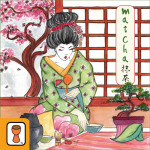
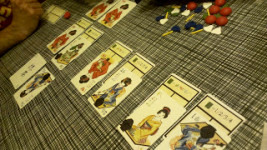


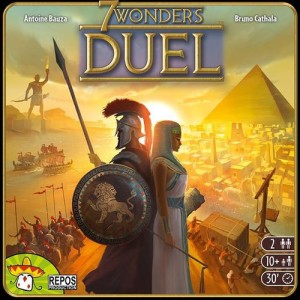
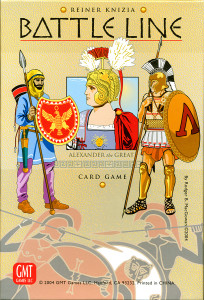
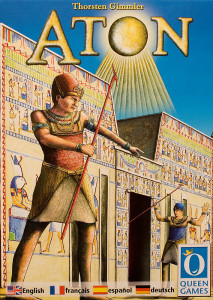
Sam says
It's a little gem. I can imagine whiling away a whole evening playing this with the right opponent.